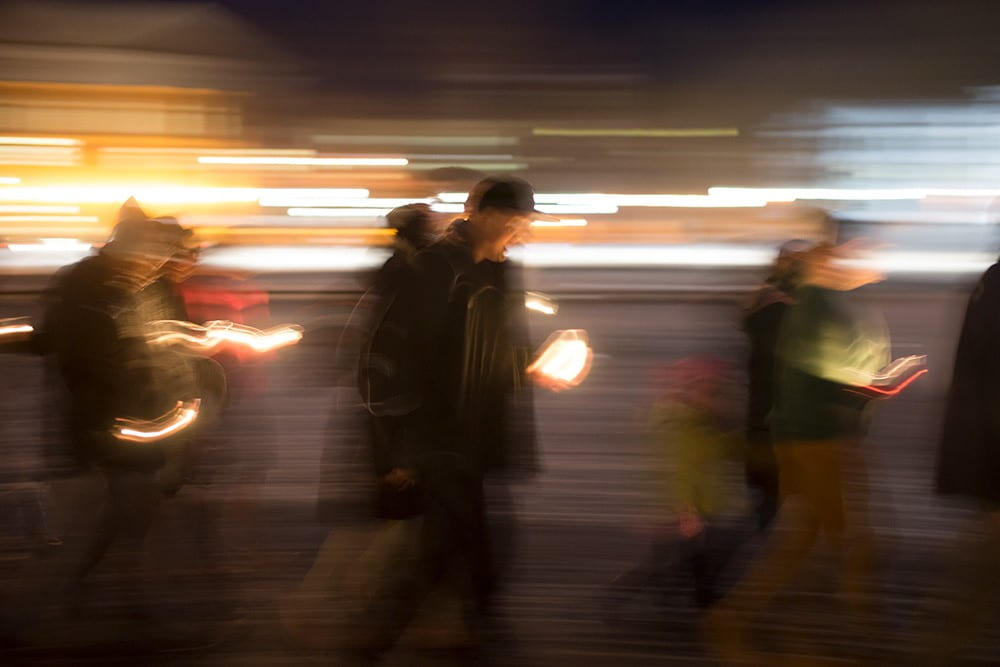
Dear Dartmouth,
Dartmouth is hosting a celebration of the national Martin Luther King, Jr. holiday with events and opportunities for involvement both today and through the rest of the month. We encourage you to explore and participate in at least some of these offerings, especially those that may open you up to new ways of seeing, thinking about, and/or understanding yourself, others, and the world we share.
The celebration theme this year is “Hope + Action,” based on a statement from Dr. King that “We must accept finite disappointment, but never lose infinite hope.” The context for this statement was, of course, the progression toward greater justice for all in the face of systemic racial inequity and it has become glaringly clear over the past year that systemic inequities persist – often perpetuated and supported by powerful organizations, interests, and governmental institutions. As such, this is an immediate and salient theme that offers itself up to each and all of us with a number of diverse opportunities for reflection.
I’ve been thinking about hope a lot lately, and the vital role it can play in our lives. At a moment when even our most basic practices of democracy seem to be at risk, it would be easy to buy into a meta-narrative of divisiveness and despair, of us and them (and on some level, of presumed good and evil), and assume that the capacity for a better future is simply beyond us. So, in scanning a portion of Dr. King’s legacy of written and spoken transcripts, a quote that had particular resonance for me this year was as follows: “Every [person] must decide whether [they] will walk in the light of creative altruism or the darkness of destructive selfishness. This is the judgment. Life’s most persistent and urgent question is, ‘What are you doing for others?’”
For me, this is the necessary bridge from hope to action. The horizon of my hope must encompass more than my own benefit and yield actions that contribute to the wellbeing of others. This is, of course, not purely altruistic, but is ultimately in my own best interest as well. We thrive together, or not, so engaging in the work of changing inequitable systems and ensuring equal access to both fundamental rights and opportunities benefits everyone. Ultimately, each of our wellbeing is more than an individual reckoning. We are caught up with one another, and can only realize a better future together.
I take comfort in the fact that this is not an original idea, but instead seems to be our foundational approach to life. In his book “Humankind: A Hopeful History,” Rutger Bregman makes the case that the preponderance of the evidence across history suggests that human beings are, in fact, fundamentally good-natured and other-oriented. He advances his thinking into a powerful argument for the need for hope, as opposed to cynicism, as a way of empowering radical, positive change, summarized neatly in this 2020 interview with NPR:
”I’m just saying that we have to remember here that cynicism is, in the first place, it’s a synonym for laziness. It sort of gives you an excuse to do nothing. And in the second place, it’s often used as a legitimization of hierarchy, because if we cannot trust each other, then we need them – we need the CEOs and the monarchs and the generals and the kings and you name it. But if we can actually trust each other, if we do have the courage to move to a more realistic, hopeful view of human nature, then we can move to a very different kind of society as well — and build very different kinds of schools and democracies and workplaces.”
Bringing this back to our local perspective, President Hanlon recently wrote the challenging and empowering statement that, even given the seemingly intractable challenges of the world, “at Dartmouth we will forever remain hopeful,” and then detailed the institutional actions that this hope is producing. With these initiatives underway, perhaps it is important for each of us to consider what it might look like if we were to consider ourselves and others in our Dartmouth community through this hopeful lens. What would happen if we believed that we are people capable of bringing about even more of the change that is needed for our community to thrive? What actions might that yield?
With those larger questions in mind, as you observe and engage with this important holiday, ask yourself the following:
What are your hopes…
…for yourself,
…for those close to you,
…for those distant from you,
…for our community,
…for our nation(s),
…and for the world we all share?
And, what is one action you would like to take to move toward these hoped-for outcomes?
Try to keep your focus on what you hope FOR, as statements based on what you hope to avoid (e.g. “I hope I/we don’t…”) are actually an expression of the cynicism that keeps us stuck in place. And be sure to expand your reflection outwards. Often our personal hopes can get tangled up with our goals and desired accomplishments but engaging in a compassionate contemplation of the needs of others can take us into a more meaningful reflection about the things that matter most.
Wishing you hope that brings about meaningful action this MLK day and always,
Todd